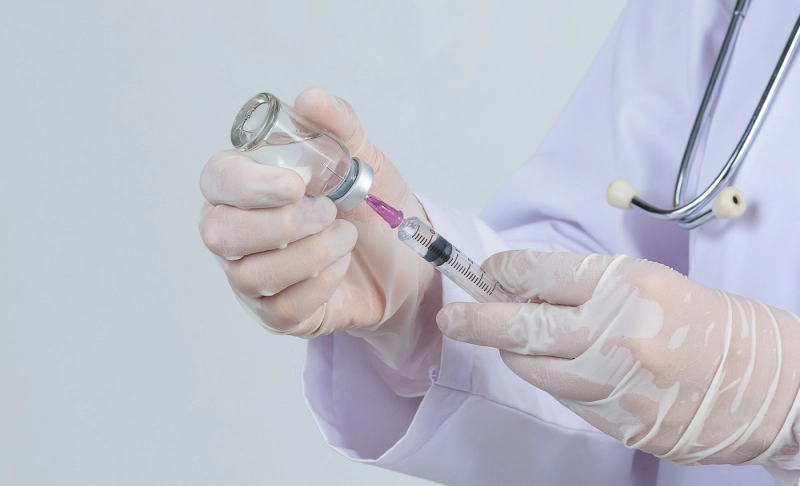By: Laura Vitelli
December 23 2022

COVID-19 vaccines are manufactured in large batches, which makes the production of more than 13 billion doses possible.
Context
A post on Facebook suggests that it would take over 10 years to manufacture 7.8 billion doses of the COVID-19 vaccine and implies that this means that the vaccines were manufactured before the COVID-19 pandemic. The video, which was originally shared to TikTok and has been reposted, has received over 154,000 views and 4,000 shares.
In Fact
According to Our World In Data, 68.6 percent of the global population has now received at least one dose of a COVID-19 vaccine, and a total of 13.05 billion doses have been administered globally. Mass production of the vaccines began a few months before they were granted emergency-use authorization in December 2020 in the U.K., U.S., and Europe.
The claim made in the Facebook post is based on the reasoning that if five companies had five manufacturing plants each, and each plant was producing one dose of a COVID-19 vaccine per second, it would take ten years to produce 7.8 billion doses. This claim does not hold, as more than thirty different vaccines have now been approved for general or emergency use in countries around the world, according to the Council on Foreign Relations website. Additionally, vaccines are not produced at a rate of one per second but are instead produced in batches of several million.
The production capacity of the available vaccines varies according to both the vaccine and the vaccine platform, but we may be able to take the manufacturing and testing process for one batch of the Pfizer-BioNTech vaccine in the U.S. as an illustrative example, as the mRNA vaccines make up the majority of vaccines received. According to an article in the New York Times from April 2021, one batch of mRNA yields up to 7.5 million doses of the vaccine after processing, and a single production suite can process up to 2 batches a week. Some manufacturing plants have two suites, such as the Andover plant in Massachusetts, U.S. This means that at the time of the New York Times article's publication, the Pfizer manufacturing plants in the U.S. alone were capable of manufacturing somewhere in the ballpark of sixty million doses of the vaccine each month.
Exact figures are near-impossible to calculate, as the specific rate of production has changed over the course of the pandemic based on shifts in demand and increasing production capacity. Since the vaccine's initial development, the global production of the Pfizer-BioNtech vaccine had come to be distributed across eleven sites in five countries by mid-2021, along with the fact that the Pfizer-BioNtech vaccine is only one among several available COVID-19 vaccines, we can confidently say that the argument presented in the video shared to Facebook underestimates and misrepresents the scale of the vaccine manufacturing process.
The Verdict
The post misrepresents the scale and development of the production process for the COVID-19 vaccines. Although precise figures are difficult to calculate due to shifts in demand and increases in production capacity, there is sufficient evidence to show that there is no reason to believe that the development of the COVID-19 vaccines began before the outbreak of the COVID-19 pandemic. We have therefore marked the post as false.
The COVID-19 pandemic has given rise to a lot of potentially dangerous misinformation. For reliable advice on COVID-19, including symptoms, prevention, and available treatment, please refer to the World Health Organization or your national healthcare authority.